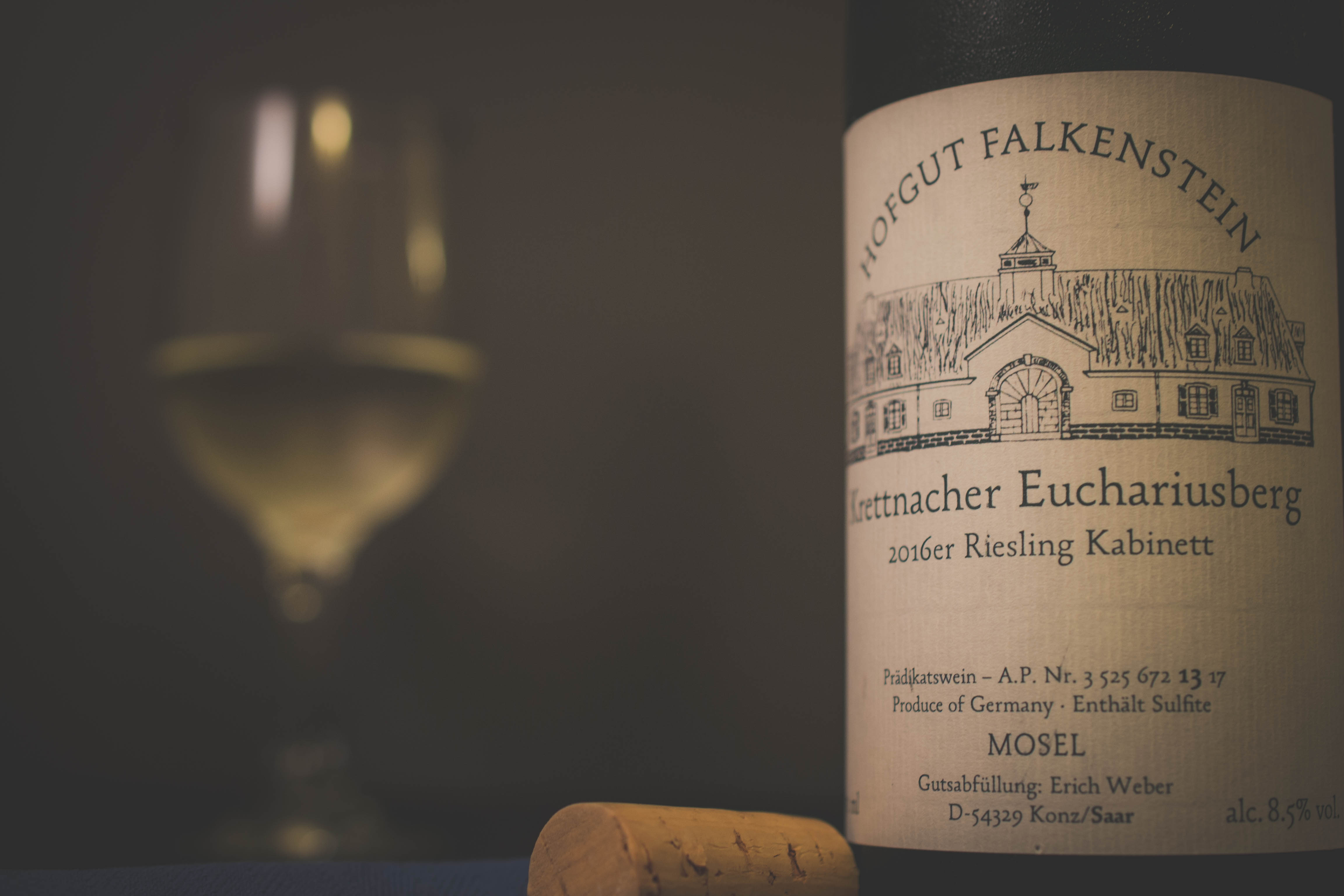Out of an entire wall of German Riesling this bottle somehow caught my eye. I think I liked the name, we used to sell a Riesling at the Chopping Block from Dr. Frank wines that the staff affectionately dubbed, “That Dr. Frankenstein wine,” …because we’re culinary professionals. I usually try not to get sold by a label, but in this case, I guess I was sold on the name; it reminded me of the immature laughter of some people I truly care about, I had to buy it. In my search for information about the winery, I stumbled across Lars Carlsberg’s write up, which quickly made me realize I don’t know shit about German Riesling.

Hofgut Falkenstein is in the Mosel region of Germany, named for the Mosel River which twists its way through Germany, Luxembourg, and France. However, it may more accurately be linked to the Saar River, a tributary of the Mosel with a longstanding reputation for great Riesling wines. Carlsberg gives an impressive write-up of both winemaker and winery, peppering technical details in between personal anecdotes. If you’re interested in learning more about Mosel wines, his website is an amazing resource.
I can’t help that feel I’m biting off more than I can chew with this blog or, perhaps, uncorking more than I can drink. From Carlsberg’s write-up, this is everything I claim to want out of a wine: produced by a small family of passionate of winemakers in a very rustic, artisanal, method. Part of me wants to a book a flight to Germany just to meet these people. I should be volunteering to pick up their banner and carry it into battle against the Constellations and Broncos of the world, but in the end the wine just didn’t resonate with me.
The wine had complexity and impressive flavors, but it finished quickly and seemed unbalanced in its sweetness. From my perspective as a retailer, it’s exactly the kind of Riesling Americans are afraid of, sweet without a complimentary acidity. I would be reluctant to stock this in my store, unless I was offering a sweet alternative to Moscato. That being said, I finished the bottle by myself and enjoyed every bit of it, but I’ve had better.

My ratings on German Rieslings are generally favorable, so much so that I often wonder if I’m showing bias when I rate these wines on Vivino. This wine scored low for me, nearly a full point below the aggregate score, and I’m very conflicted about that. Perhaps this is an issue of my expectations being at odds with reality, or maybe I was just having an off day, or maybe my assessment is right and I’m simply questioning myself because I want to like this wine so badly. Instead of buying into a label or a name, have I simply allowed myself to be sold on the idea of the artisanal winemaker?
There is no doubt that the world of German Riesling is much more complex than I understand it to be and I’m looking forward to diving deeper into that rabbithole. Maybe in time I’ll be able to wax poetic about the nuances of Saar Rieslings compared to the greater Mosel region or Rheinhessen. For the moment, I have to leave this wine where it is, but I hope to return to it one day and give it another chance. If you’ve tried this wine or have strong opinions on German Riesling in general, I’d love to hear what you think in the comments below.
